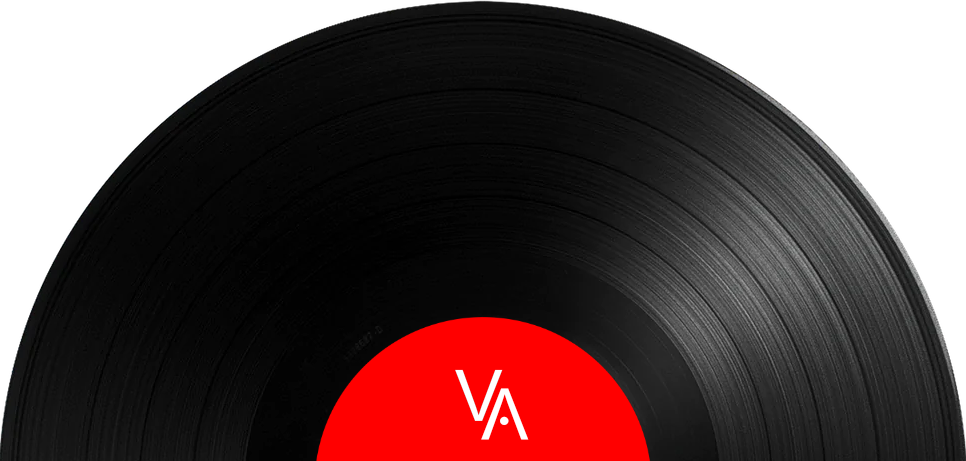
I remember the first time I heard Stan Rogers sing. It was a song from this LP called The Field Behind The Plow, and it was in 1985. I was working as a reporter at the time for the local newspaper in Timmins, Ontario, and I was driving home from the newsroom one miserable and really stormy summer Saturday afternoon. CBC was broadcasting a special program dedicated to the music and life of Stan Rogers, and the instant I heard that song I became a fan.
When I got home I sat in my car in the driveway until the show was over because I didn’t want to miss a single note. I remember being absolutely shocked and so disappointed when the radio announcer informed me that Rogers had died a couple of years previously in an Air Canada plane fire. I bought this record the next day, and I’ve worn out a couple of copies since. And I must have bought it in bulk because I found two more sealed copies buried in the record collection, which I traded.
There are several stand-out tracks, including the title track, which has become something of an unofficial Canadian national anthem. But my favourite is The Field Behind The Plow. It's a perfect song. Many years later I met Garnet Rogers, Stan's enormously talented brother who was a member of his band and later a solo artist in his own right. I gave him a copy of The Field Behind The Plow that someone had recorded on banjo. He'd never heard it before and it's a really nice interpretation. I can't remember who does it, though, and I lost the original CD.
Northwest Passage, the title track of this record, is one of the best-known Stan Rogers songs. It's done a cappella and features Rogers singing the verses alone, with several guest vocalists harmonizing in the chorus. The song recalls the experiences of the early explorers who were searching for a route across Canada to the Pacific Ocean, particularly Sir John Franklin, who along with the rest of his crew lost his life in the quest. It also references the geography of Canada, specifically the Fraser River on the western coast and the Davis Strait in the east.
The song's narrator sings about taking the "passage overland in the footsteps of brave Kelso," a reference to English explorer and fur trader Henry Kelsey, who was apprenticed to the Hudson's Bay Company in 1684 and commissioned to explore westward over the plains in response to competition from rival French traders. In an interview in 1982 Rogers admitted that during the writing of the song he'd been unsure of Kelsey's name and wrongly guessed it was "Kelso". Well, that's OK. It fits the song better, I think.
This LP, released in 1981, was the high water mark of Rogers' career. Former Governor General Adrienne Clarkson quoted the song in her first official address and also later in a speech at the dedication of the new Canadian embassy in Berlin.
Northwest Passage also appeared in the final episode of the television series, Due South, and has been covered by many other artists. In addition, it was used by the BBC World Service's World Today program during a story about the expansion of Canada's efforts to confirm its sovereignty over the arctic region through which the Northwest Passage runs.
I remember the first time I heard Stan Rogers sing. It was a song from this LP called The Field Behind The Plow, and it was in 1985. I was working as a reporter at the time for the local newspaper in Timmins, Ontario, and I was driving home from the newsroom one miserable and really stormy summer Saturday afternoon. CBC was broadcasting a special program dedicated to the music and life of Stan Rogers, and the instant I heard that song I became a fan.
When I got home I sat in my car in the driveway until the show was over because I didn’t want to miss a single note. I remember being absolutely shocked and so disappointed when the radio announcer informed me that Rogers had died a couple of years previously in an Air Canada plane fire. I bought this record the next day, and I’ve worn out a couple of copies since. And I must have bought it in bulk because I found two more sealed copies buried in the record collection, which I traded.
There are several stand-out tracks, including the title track, which has become something of an unofficial Canadian national anthem. But my favourite is The Field Behind The Plow. It's a perfect song. Many years later I met Garnet Rogers, Stan's enormously talented brother who was a member of his band and later a solo artist in his own right. I gave him a copy of The Field Behind The Plow that someone had recorded on banjo. He'd never heard it before and it's a really nice interpretation. I can't remember who does it, though, and I lost the original CD.
Northwest Passage, the title track of this record, is one of the best-known Stan Rogers songs. It's done a cappella and features Rogers singing the verses alone, with several guest vocalists harmonizing in the chorus. The song recalls the experiences of the early explorers who were searching for a route across Canada to the Pacific Ocean, particularly Sir John Franklin, who along with the rest of his crew lost his life in the quest. It also references the geography of Canada, specifically the Fraser River on the western coast and the Davis Strait in the east.
The song's narrator sings about taking the "passage overland in the footsteps of brave Kelso," a reference to English explorer and fur trader Henry Kelsey, who was apprenticed to the Hudson's Bay Company in 1684 and commissioned to explore westward over the plains in response to competition from rival French traders. In an interview in 1982 Rogers admitted that during the writing of the song he'd been unsure of Kelsey's name and wrongly guessed it was "Kelso". Well, that's OK. It fits the song better, I think.
This LP, released in 1981, was the high water mark of Rogers' career. Former Governor General Adrienne Clarkson quoted the song in her first official address and also later in a speech at the dedication of the new Canadian embassy in Berlin.
Northwest Passage also appeared in the final episode of the television series, Due South, and has been covered by many other artists. In addition, it was used by the BBC World Service's World Today program during a story about the expansion of Canada's efforts to confirm its sovereignty over the arctic region through which the Northwest Passage runs.


